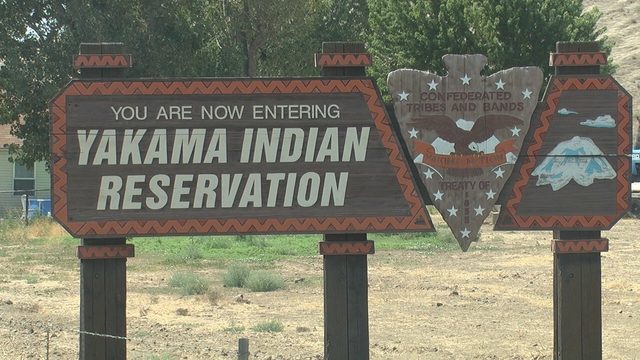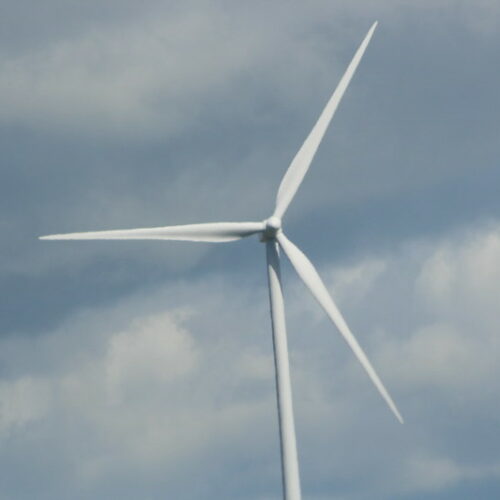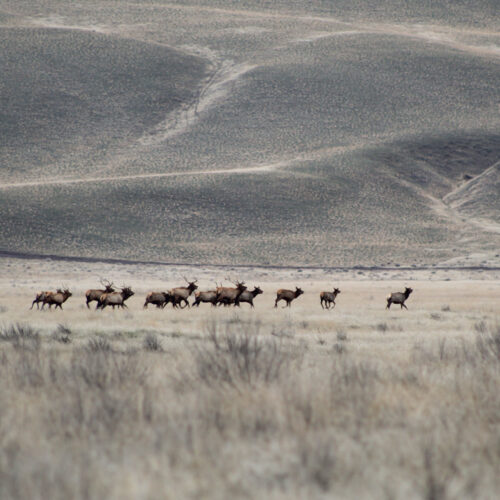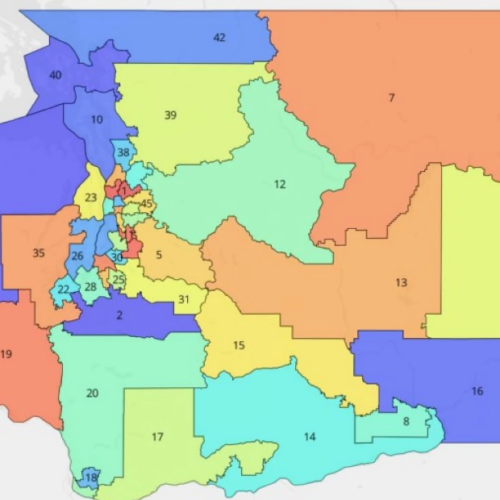
Federal Judge Denies Injunction For Yakama Nation In Jurisdiction Case With Toppenish And County
Read On
Recently, a federal judge sided against the Yakama Nation in a jurisdiction case involving the tribe, the city of Toppenish and Yakima County.
Brooke Pinkham, a Nez Perce tribal member and director of the Center for Indian Law and Policy at Seattle University, thinks that order infringes on tribal sovereignty.
“The Yakama Nation has an inherent authority to govern its own people on its own land,” she said, adding that the Yakama Nation is likely to appeal — and has a good shot of winning.
The case hinges on an incident from September 2018. Toppenish police tracked a ‘bait car’ they had set up to a residential home in Toppenish within the reservation boundaries.
While Yakama Nation tribal police were present with the Toppenish officers, Toppenish police obtained a warrant to search the property and arrested a tribal member involved in the case, something tribal police were opposed to.
This is where it gets tricky. Because when a crime happens in Yakima County, a couple questions are key.
One: Were either the victim or perpetrator Yakama Nation citizens? And two: Where exactly did it happen?
The Yakama Nation is a checkerboard reservation — one where both Natives, non-Natives and the state own different sections — and location can mean either local authorities and/or tribal officers get involved.
In this case being reviewed, the city of Toppenish arrested a tribal member on fee land. That’s an area within the reservation boundaries but not owned by the state. It can be owned by Yakama members or non-Natives.
The Yakama Nation says because this crime was on reservation land, involving tribal members, it’s in their jurisdiction. The city of Toppenish and Yakima County disagree.
To add to everything, retrocession — or the process of returning certain civil and criminal jurisdictions from the state to tribes — complicates the case.
In February, a federal judge sided with the city and county and denied the Yakama Nation a permanent injunction.
In a press release, Yakama Tribal Chairman JoDe Goudy expressed displeasure with the judge’s decision.
“We are disappointed that the United States is endorsing the state’s unilateral seizure of concurrent jurisdiction within Yakama lands,” Goudy said.
Don Anderson, a Yakima County prosecuting attorney, says there’s been a lot of confusion around jurisdiction in the last few years. But Anderson adds that it’s important for all law enforcement — county, cities and tribal police — to work together to ensure the safety of both Native and non-Native residents in the county.
The Yakama Nation has 30 days to appeal the decision.
Related Stories:

Washington council approves wind farm near the Tri-Cities, slashing turbine numbers
A controversial wind farm that was set to be the largest in Washington has been slashed nearly in half. (Credit: John McIntyre / Flickr Creative Commons) Listen (Runtime 1:06) Read

A return after seven decades: Inside the Yakama Nation’s elk hunt on the Hanford Reach
A group of elk runs from Yakama Nation hunters on the Hanford Reach National Monument in December 2023. (Credit: Star Diavolikis / Yakama Nation) Listen (Runtime 3:50) Read A video

Juez aprueba nuevos mapas de distritos legislativos de WA
Un juez federal determinó que este, con algunas adecuaciones, será el nuevo mapa de distritos legislativos de Washington. (Crédito: Imagen tomada de documentos judiciales). LEA Por: Jeanie Lindsey, Northwest News















